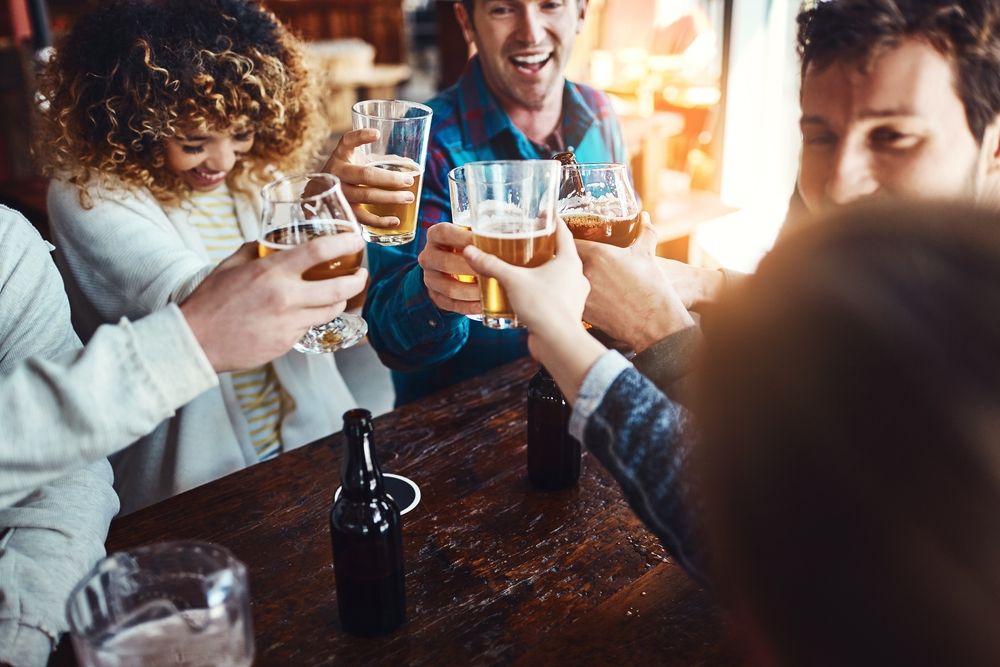
Sticking to your health goals can be challenging when alcohol is a big part of your social life, from post-work cocktail hours to casual get-togethers with friends. Many popular drinks, like margaritas, mojitos, and gin and tonics, are refreshing and flavorful but high in carbohydrates from ingredients other than alcohol.
Low-carb alcoholic drinks offer a solution by striking a balance between abstaining and indulging. By omitting sugary flavorings, mixes, and juices, these drinks allow you to enjoy a lower-carb and often lower-calorie option.
Even with low-carb alcoholic drinks, it's important to monitor alcohol intake. Alcohol provides calories without nutritional value and can impact your health goals. It lowers inhibitions and impairs your ability to sense hunger and fullness, which can lead to increased cravings and appetite.
In this article, we'll define low-carb alcoholic drinks and suggest what to order at the bar.
What Are Low-Carb Alcoholic Drinks?
Alcohol itself is naturally carb-free. Liquors such as rum, vodka, whiskey, tequila, and gin contain zero carbohydrates.
However, while alcohol may be low-carb, cocktails often are not. Flavorings, juices, syrups, tonics, and other ingredients used in cocktails add sugars and carbohydrates. For example, a regular margarita can have upwards of 36 grams of carbohydrates per drink, making it high-carb.
Low-carb alcoholic drinks avoid these high-carb mixers. Instead, the alcohol is consumed neat, on the rocks, or with sparkling water. Sometimes, a wedge of citrus or a splash of juice is added for flavor.
Additionally, pre-made drinks like canned cocktails or beer can be crafted to be low-carb. Adjustments in fermentation and processing methods result in a low-carb beverage that retains some of the taste and mouthfeel of traditional drinks.
Low-Carb Drinks to Order
There are plenty of low-carb drinks you can order at the bar. Here are some recommendations, though this list is not exhaustive. When in doubt, pair your favorite spirit with soda water and a wedge of lemon, lime, or orange for a low-carb alcoholic beverage.
Vodka Soda
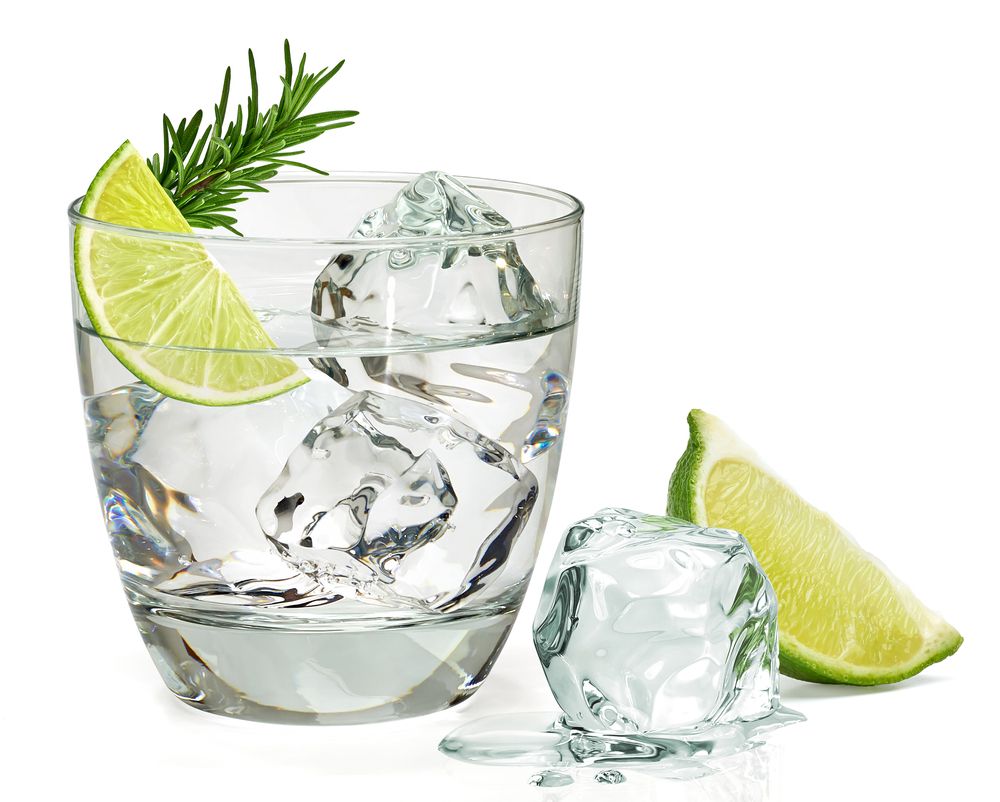
Nutrition (Per 8-Ounce Drink):
- Calories: 133
- Carbs: 0
- Sugar: 0
- ABV (Alcohol by Volume): 8%
Vodka soda is the classic low-carb drink, making it a great cocktail choice with no carbohydrates or added sugar. Sparkling water dilutes the vodka, allowing the drink to last longer without impacting the nutritional profile. Citrus fruits are lower in sugar and carbohydrates than other fruits. Squeeze a wedge of lime, orange, or grapefruit into the beverage for added flavor without affecting the calorie or carbohydrate content.
Tequila and Lime
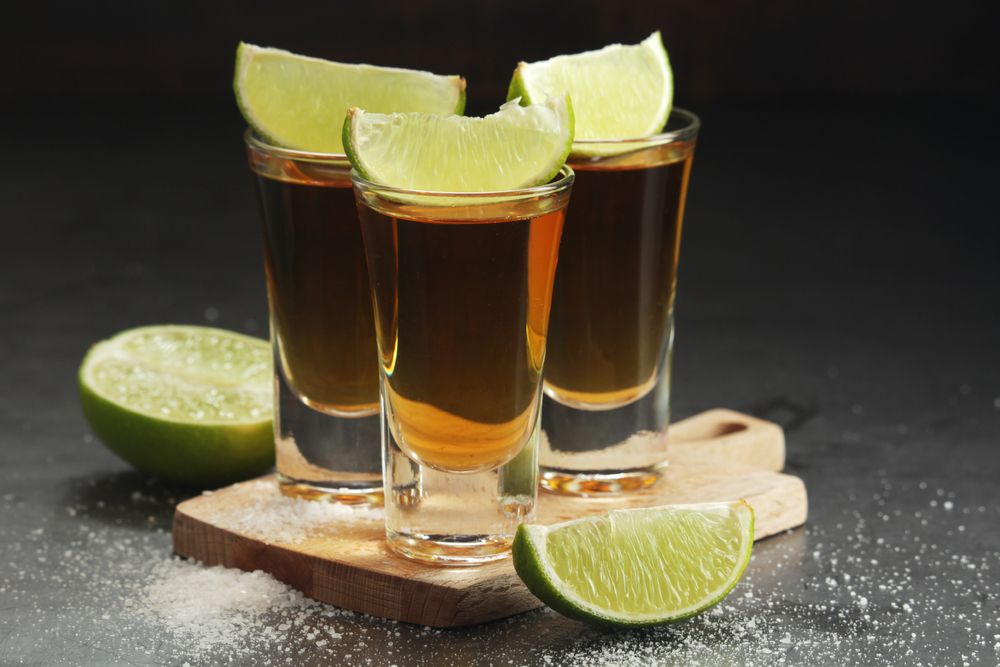
Nutrition (Per 1-Ounce Shot of Tequila and Splash of Lime Juice):
- Calories: 65
- Carbs: <1 g
- Sugar: <1 g
- ABV: 33%
A tequila and lime is a lower-calorie alternative to a margarita. Instead of using a pre-made margarita mix that is high in carbohydrates, this option sticks to the basics: tequila and lime. Ask for a splash of lime juice or flavor the tequila with a lime wedge to keep the drink low-carb.
When choosing your tequila, opt for silver tequila unless you're going for top-shelf. Top-shelf darker tequilas achieve their color from aging processes, while lower-quality tequilas often use additives like syrups for their gold coloring.
Martini
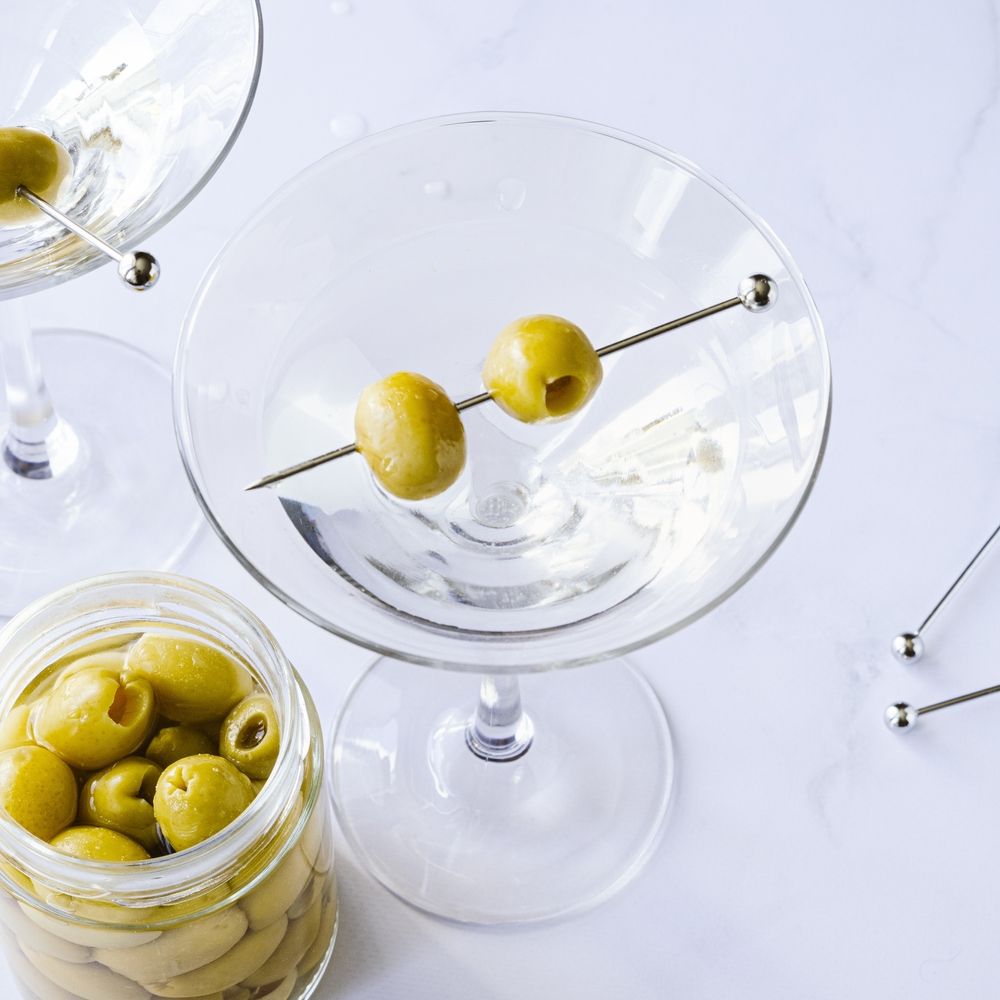
Nutrition (Per 4-Ounce Drink):
- Calories: 241
- Carbs: <1 g
- Sugar: <1 g
- ABV: 29%
A martini is essentially all alcohol, made with vodka or gin and dry vermouth, an aromatic fortified wine used for flavoring. The high alcohol content contributes to the higher calorie count per 4-ounce drink. Still, the martini remains low-carb. Vodka and gin are zero-carb, while vermouth contains some carbohydrates. However, only a small amount of vermouth is used in a martini, keeping the carb content low.
Dry Wine

Nutrition (Per 5-Ounce Pour, Pinot Grigio):
- Calories: 122
- Carbs: 3 g
- Sugar: 0 g
- ABV: 11%
Dry wines are a great low-carb option, with each 5-ounce pour containing about 3 grams of carbohydrates. The fermentation process converts most of the sugar into alcohol, leaving little residual sugar. Because the entire pour contains alcohol, dry wines have a higher ABV than many other low-carb alcoholic drinks.
Low-carb dry wines include sauvignon blanc, chardonnay, pinot noir, cabernet sauvignon, and pinot grigio.
Light Beer
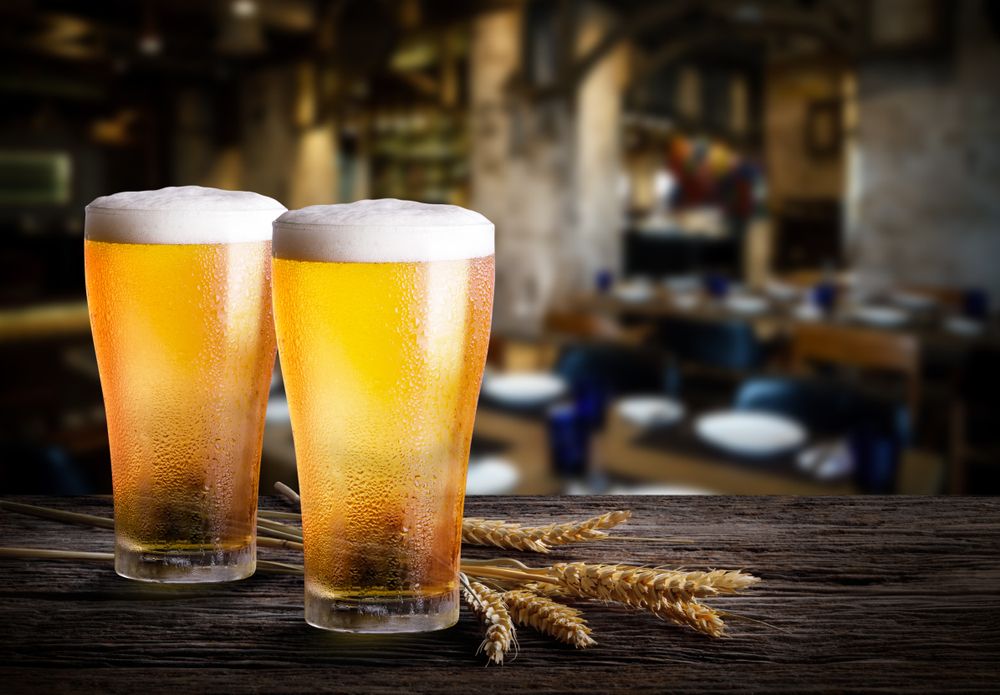
Nutrition (Per 12-Ounce Can):
- Calories: 103
- Carbs: 6 g
- Sugar: <1 g
- ABV: 3%
Light beers are lower in calories and alcohol compared to regular beer. They are made with fewer malted grains, and other ingredients like rice and corn are often added to enhance flavor and body. The brewing process for light beers can result in a weaker taste, but they remain a suitable low-carb alternative.
Rum and Diet Cola
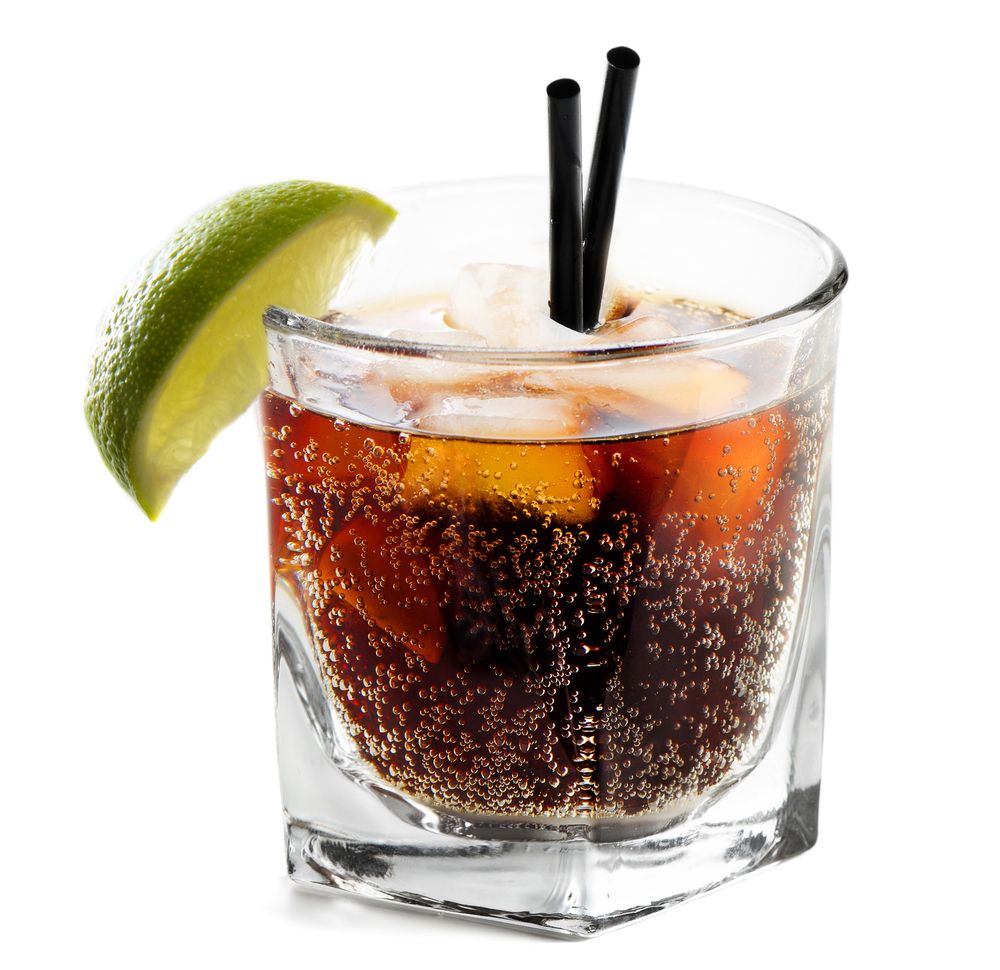
Nutrition (Per 8-Ounce Drink):
- Calories: 135
- Carbs: 0.5 g
- Sugar: 0
- ABV: 8%
Despite being derived from sugarcane, rum is naturally low-carb and sugar-free. However, some brands add sugar after processing, which can increase the carbohydrate and calorie content. To make an informed choice, check out this list of sugar content in different rums.
Opt for white rum instead of dark rum, as some dark rums use molasses for coloring, adding to the alcohol's calorie and carbohydrate content. Use diet cola to reduce the carbohydrate and calorie content of a rum and cola. A rum and diet cola has less than one gram of carbohydrate per 8-ounce serving compared to nearly 18 grams of carbohydrates in a regular rum and cola.
Hard Seltzer
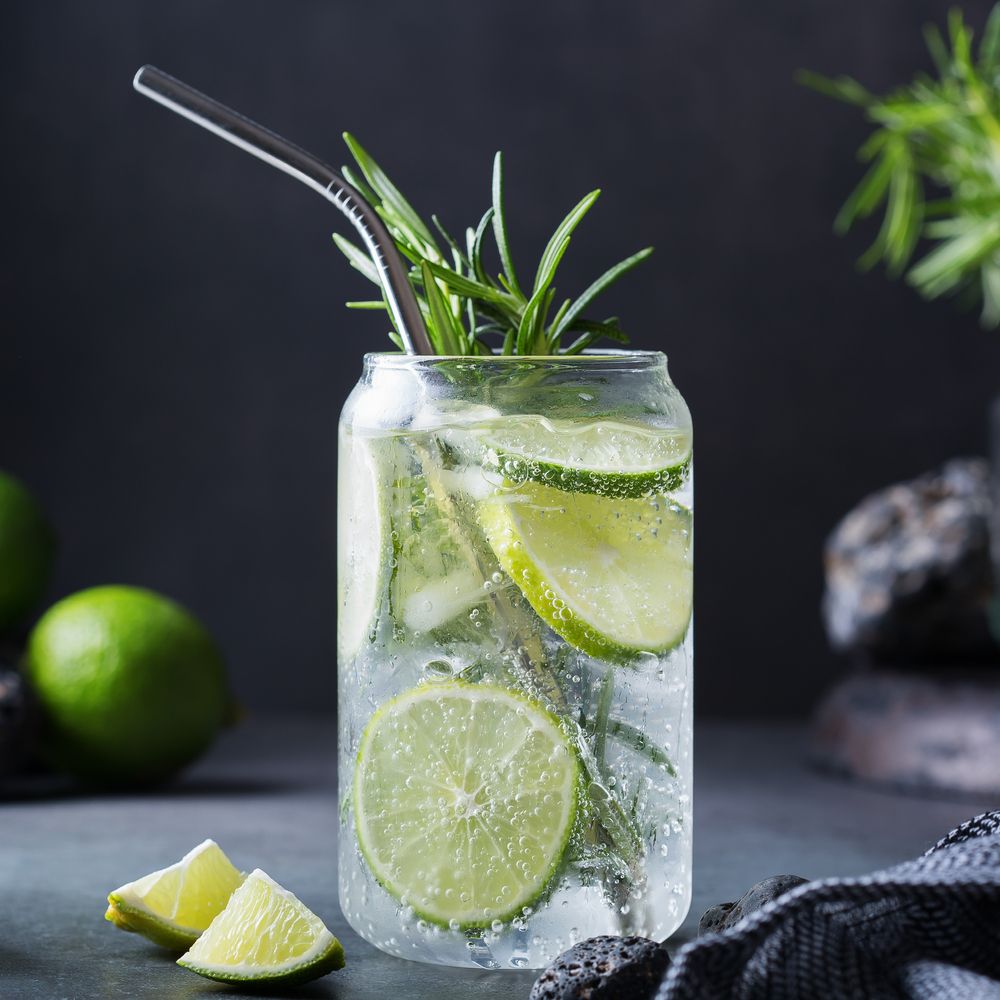
Nutrition (Per 12-Ounce Can of Mango Hard Seltzer):
- Calories: 99
- Carbs: 2 g
- Sugar: 2 g
- ABV: 5%
Hard seltzers are increasingly popular, combining soda water, alcohol, and flavoring for a convenient low-carb cocktail. Although the nutritional profile varies by brand, most hard seltzers are low-carb. While they do contain sugar cane, the added sugar typically amounts to just 1% of the daily value, keeping hard seltzers low in carbs. Plus, with various flavors available, they offer multiple options for a low-carb alcoholic drink to order at the bar.

